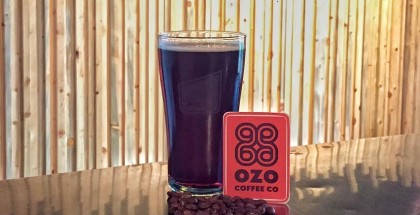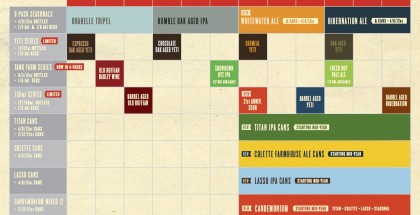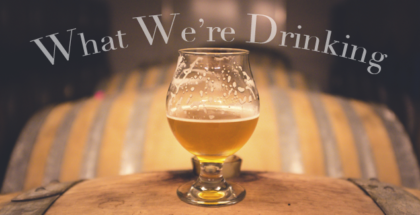Taking a Look at the Craft Beer Industry’s Eco-Friendly Earth Day Initiatives
A very merry almost Earth Day to you, my fellow earthlings! I hope you are enjoying your day on this lovely planet by reading this article with a beer in your hand. While you do that, be sure to recognize all the different resources it takes to make that craft beer you are holding. Everything that you see in the brew, as well as the device containing that beer, comes from a vast number of components and people to make it happen. With this special relationship between us and Earth, being eco-friendly is very important.
For breweries, sustainable practices is important as it ensures the resources to make future beer are easily obtainable. To do this, breweries engage in several eco-friendly practices. First, they find ways to recapture wastes such as gas and water. Second, they reduce resources needed through operational efficiencies like utilizing equipment that maximize an ingredients full potential. Third, they can upcycle or recycle used supplies for new purposes.
When you think about some of your favorite breweries, you realize you probably know about their sustainability practices. Some of the most famous examples:
- Beginning with New Belgium Brewing Company employees willing to forego profit-sharing for wind power, today they divert 99.9 percent of its waste from landfills.
- Sierra Nevada Brewing Company‘s North Carolina Brewery boasts 2,200 solar panels and is a Leadership in Energy and Environmental Design (LEED) certification at the highest level, Platinum.
- Alaskan Brewing designed a system where they could fuel a steam boiler with its spent grain. Typically, breweries give their spent grain to local farmers for livestock feed. Yet, with limited livestock in the Juneau, Alaska, region, Alaskan Brewing shipped its spent grain until they created this system.
- While a typical brewery uses six to eight gallons of water per gallon of beer produced, Full Sail Brewing Company uses 2.5 gallons of water per gallon of beer produced thanks to some of its high-efficient equipment.
Other Inspiring Brewery Eco-Friendly Initiatives
Always adapting and innovating, breweries continue to initiate and further their own sustainability practices. Initially, it is very hard for many breweries just to get their operations going and be successful. Thus, when the timing is right is to see a brewery become sustainable, it is important to recognize the successes no matter how small or simplistic.
Read below some of the examples of the more recent examples about craft beer’s eco-friendliness.
Great Divide Brewing‘s Community Recycling Program

With at least 14 breweries in the RiNo region, waste solely the brewing community must be quite significant. Great Divide Brewing, which has two locations in the neighborhood, began researching ways to create a community recycling program. Specifically, items like polypropylene grain bags and shrink wrap. These items are not usually accepted by recycling centers unless they are compacted into blocks using a baler.
“We estimate that we use 2,000 lbs of polypro grain bags a month, and all of this was going to the dump,” said Erin Cox, sustainability coordinator at Great Divide. “We realized if we were struggling with recycling these items, then surely our neighboring breweries were also having the same issue.”
Recently, the brewery was recently awarded a $16,000 grant to launch a recycling program in the RiNo neighborhood for small manufacturing businesses. Great Divide is now an official recycler in the state of Colorado. With the grant, Great Divide purchased two balers and a pallet scale. This also allows participating businesses to understand their diversion rates and impact. Initially, Great Divide will test how smoothly everything runs with RiNo breweries Bierstadt Lagerhaus and Black Shirt Brewing. With successful testing, they will open up to other RiNo small businesses in the fall.
“At the end of the day, this grant serves as a way to ensure that we’re impacting the environment as little as possible,” said Cox. “With these new resources, we are now able to not only bale our own waste streams, but can handle our neighbors’ recyclable byproducts as well.”
Wise Man Brewing Going Solar
This Winston-Salem, North Carolina, brewery recently celebrated its first anniversary and added on their roof a new 34-kiloWatt solar panel system. Additionally, Wise Man Brewing installed thicker insulation, LED lighting, and high-efficient water taps.
Upslope Brewing‘s Wastewater Turning Into Ink

Did you know that if you mix carbon dioxide, spent grain, and canning rinse water it can lead to printing ink? Well, Upslope Brewing in Boulder, Colorado, partners with Boom Algae and Living Ink Technologies to turn all those ingredients into a special algae yeast strain, which can then be turned into ink.
In the beginning, the strain is grown and harvested at the brewery. Next, Living Ink takes that strain, turns it into algae-ink, and then prints Upslopes menus and promotional materials.
Hopworks Urban Brewery is Salmon-Safe Certified
Albeit this may sound like the brewery is fish-proof, this designation means that a business’s operations lead to safe water for fish. Reducing pesticides and irrigation water use, establishing areas for native plants, and rebuilding stream buffers are important techniques to creating a safe watershed area for fish. Fittingly, this certification is awarded by the nonprofit Salmon-Safe. Typically, this certification is popular among hop farmers. However, HopWorks Urban Brewery in Portland, Oregon, became the first Salmon-Safe brewery site. On their website, they list a few of the steps they took to gain this certification:
“Our stormwater management includes a retention pond and pervious pavers in the upper parking lot. In addition to site factors that are the focus of Salmon-Safe assessment, our restaurant utilizes low-flow faucets kitchen equipment, and waterless urinals. The brewery minimizes intensity through water-saving equipment including a heat exchange unit, and a recently installed Clean In Place Skid and Centrifuge.”
Some Craft Beer Earth Day Events Around the Country
Saturday, April 21
- Coronado Brewing (San Diego, California): Ocean Beach Pier Clean-up
- Earth Day Beer Fest (Newark, New Jersey)
- Kelleys Island Brewery (Kelleys Island, Ohio): Earth Day Bioblitz
- Portland Brewing Co. (Portland, Oregon): Earth Day 5k Fun Run and Brew Fest
- Scorched Earth Brewing (Algonquin, Illinois): Scorched Earth Day Fest, starts 4/20
Sunday, April 22
- Blue Mountain Brewery (Afton, Virginia): Every $5 growler purchased gets 2 trees planted
- Concrete Beach Brewery (Miami, Florida): Tree planting and create a chalkboard planter
- Ithaca Beer Co. (Ithaca, New York): Mudder Earth Run (5k)
- Terrapin Beer Company (Athens, Georgia): Live music, vendors, and activities
- Wasatch Brew Pub (Park City, Utah): Earth Day Dinner Fundraiser








Submit a Comment